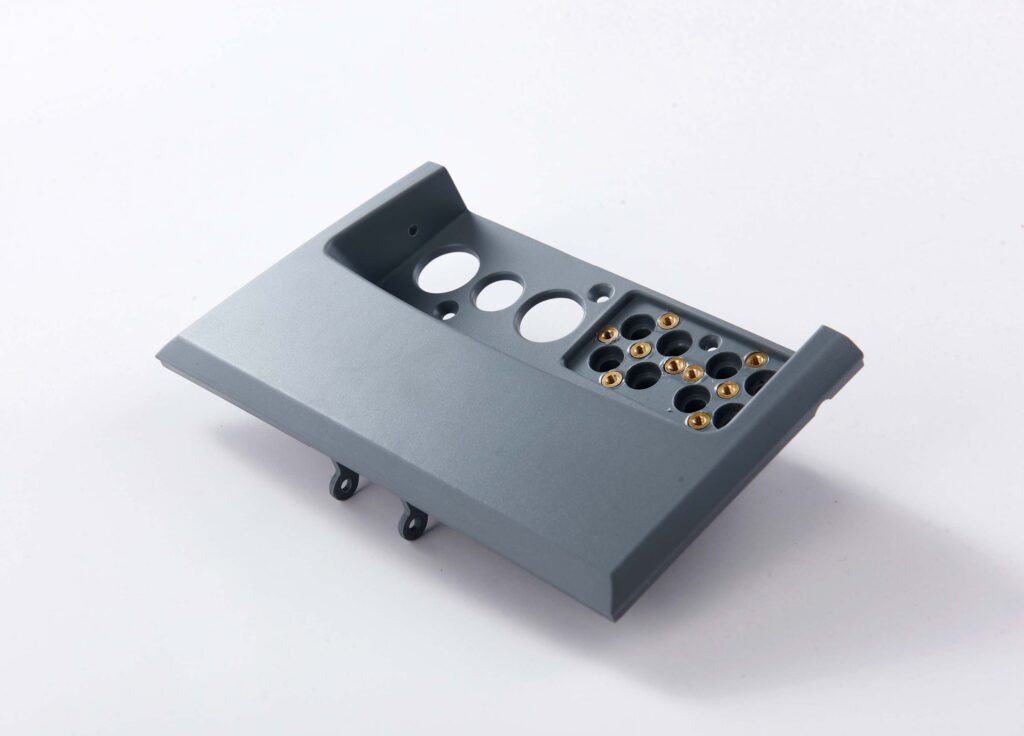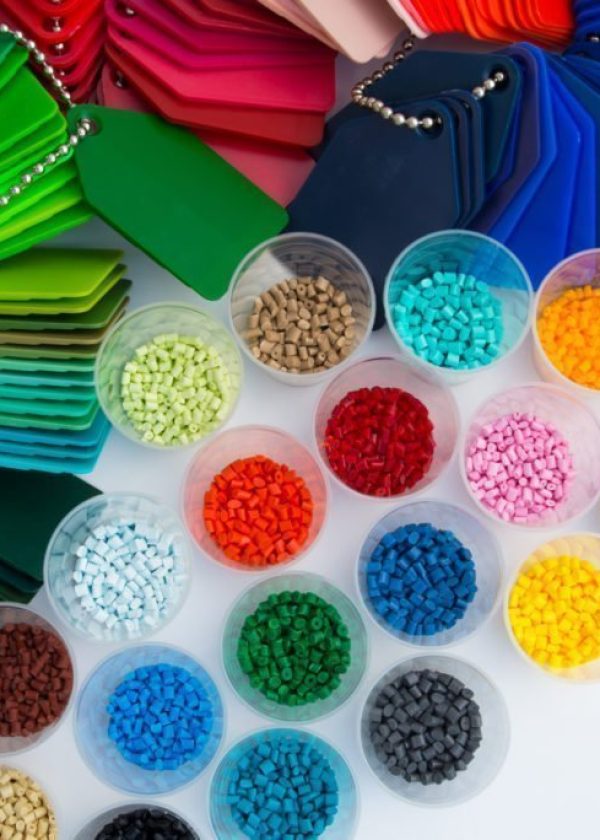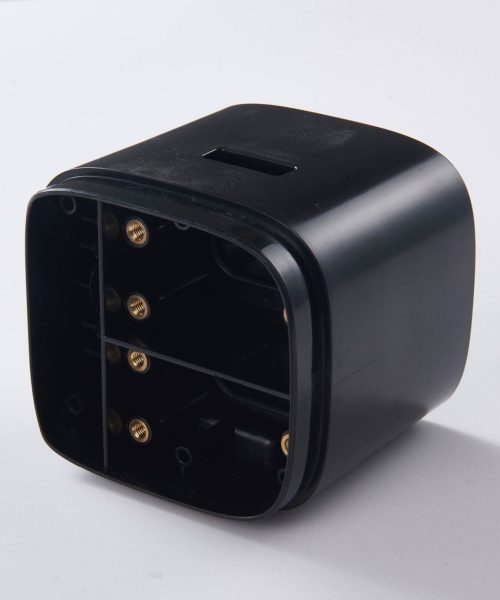Insert Molding Services
Integrating metal into plastic with insert molding services
- Creates Strong Parts
- Cost-Efficient Tooling
- High-Quality Finishing
- Reduced Production Time
Certificaciones: IATF16949:2016 | ISO9001:2015
Insert molding is a common manufacturing process where the insert is placed into the mold. This placement of the insert can be automated or manual, depending on the production volume of the parts. For high volumes, the placement is typically automated, and for low volumes, it is manual.
Por qué elegirnos
Puede utilizar estos apartados para destacar las características de la rúbrica. Utilice estos apartados para centrarse en el tema que desee. Asegúrate de que sean breves y atractivos.
Timely Production and Delivery
We pride ourselves on our timely services. From the initial quotation to the final delivery, all our services are done right on time, maybe even quicker.
Consistently Reliable Quality
We follow the highest quality standards and have strict quality assurance tests in place to ensure that the final product is the best.
Diversas opciones de materiales
We offer a wide selection of materials for all our manufacturing procedures, including insert molding. We empower you to choose materials so that it helps accomplish the application of your product.
On-Demand Customization
We work with you as a team to provide you with a product according to your requirements. We communicate with you to understand your specifications and then manufacture a tailor-made customized product.
How Do Our Insert Molding Services Work?
Here is the typical working order to expect when you hire us for our insert molding services:
Enviar solicitud
Envíe su solicitud de presupuesto gratuito con una descripción y un dibujo técnico de su producto. Si no dispone de dibujo técnico, no se preocupe. Podemos realizar ingeniería inversa.
DFM y presupuesto
Solemos responderle en un plazo de 24 horas.
Fabricación de moldes y mecanizado
Once you approve the quote and make the deposit, we start working on the initial work of tooling, preparing machines, and so on.
Envío
Embalado, etiquetado y enviado a su puerta a tiempo
Find the Best Insert Molding Service?
This is where you get it all. Request your free quote today, and enjoy the best insert molding services.
Design Guidelines for Insert Molding Services
Our insert molding services allow you to manufacture parts so that they can meet a variety of functional needs. We ensure the quality of your insert molding project with the following molding design needs that are executed in a specific manner.
The Machining
We have vertical machines of wide capacities that are designed to carry out the plastic molding process through insert injection molding, and have a set of design guidelines that are accurately followed by our expert and experienced engineering team. The machines we use for our insert molding have an exceptionally tight tolerance, which ensures that the information on the plastic parts is accurate in plastic injection molding. We know that even a minor misalignment in millimeters can end up causing failure for the product, which is why we ensure no inaccuracy.

The Inserts
There are many different types of inserts used in the designing and manufacturing of molded components. These metal insert in the insert molding is usually made of brass, stainless steel, or the usual steel. The molds are placed vertically in the machine, manually or automatically through the CNC machining. The vertical position is to make sure that the mold stays safely in its place during the process of insert molding with the help of gravity. Now the molten plastic is poured into the mold, and the mold is closed.
Thread Options
Thread options allow the manufacturer to place pipes, screws, or anything else into the mold at specified locations. They aim to ensure that the mold does not make the product insert. As the product needs to be connected to external conduits in many ways, the mold will allow the final product to stay functional and useful.
Materials Used for Insert Molding
Here are the most commonly used materials for plastic injection molding:
ABS
ABS/PC
Acetal
Delrin
ETPU
HDPE
LCP
Nylon
PBT
PC/PBT
PEEK
PEI
PET
PETG
PMMA
CCE
PPE/PS
PS
FUENTE DE ALIMENTACIÓN
TPU
LDPE
Policarbonato
Polipropileno

Tolerancia
Acabado
We offer multiple finishing options to complete the products made with the insert molding process. You can choose from any of the following depending upon your application’s requirements:
Acabado estándar
Acabado interior, no cosmético, según la geometría del molde.
Texturizado de moldes
Creación de texturas en los moldes para que se vean en el producto final. Esta opción de acabado incluye mate, remolinos, patrones y líneas.
Acabados SPI
Gama de acabados SPI desde grado 3 diamante / pulido alto hasta 320 piedra pulido bajo. Estas opciones de acabado incluyen SPI A-1, SPI A-2, SPI A-3, SPI B-1, SPI B-2, SPI B-3, SPI C-1, SPI C-2, SPI C-3, SPI D-1, SPI D-2 y SPI D-3.
Grabado por láser
Grabe números de pieza, diseños, logotipos o cualquier otra impresión especificada en sus piezas.
Insertos roscados
Podemos instalar los insertos estándar más utilizados y populares en tamaños UNF y métricos.
Tampografía
Aplicación de un diseño a base de tinta sobre la superficie.
Como moldeado
Como su nombre indica, el molde permanecerá "tal cual", sin texturas secundarias ni pulido.
Pintura
Pintura de la superficie con colores estándar o Pantone a juego, incluyendo imprimación y capa de acabado. Enmascaramiento disponible; pintura EMI (cobre).

Aplicación industrial
From manufacturing functional prototypes to large volume production runs, insert molding is used across a wide range of industries for various applications, including:
Aerospace and automotive
Insert molded parts are used in multiple aerospace and automotive environments, where they are created to meet precise industry standards and certification requirements.
Consumer-facing products
Insert molded parts can be manufactured from a variety of high-quality materials with customizable finishing options that are ideal for consumer-facing products.
Low volume production
Insert molding offers consistency and cost-efficiency, which is ideal for low-volume manufacturing projects.
Handheld devices
Insert molding is commonly used to produce handheld devices, such as scissors, remote control coverings, tools, case assemblies, knobs, and more.
Nuestros puntos fuertes
Quick Online Cita
We give our customers instant quote with experienced technical team. Once a quote is submitted online, you will have a response within 24 hours.
Varied Material Selection
We run more custom resins and diverse material options for our customers so that they make a selection according to their project needs.
End-to-End Servicios
We offer full-service design, manufacturing, and development support to see the customer’s project through from concept to market-ready product.
Insert Molding FAQs
Get vital details about Insert Molding Services that may be critical to your specific needs.
What information is required for quoting an insert molding project?
For an accurate quote, we need detailed part drawings, information about the material of both the insert and the plastic, the quantity of parts needed, and any specific requirements like tolerances or finishing.
What material should I use for insert molding?
The choice of material depends on your part’s application. Common plastics include ABS, polycarbonate, and nylon. The insert material is typically metal. Consider factors like strength, temperature resistance, and environmental exposure.
Can you assist with the design of the part for insert molding?
Yes, we offer design assistance to ensure your part is optimized for insert molding, considering factors like material compatibility, insert placement, and moldability.
What are the size limitations for insert molding?
Size limitations depend on our equipment capabilities. Generally, insert molding is used for smaller to medium-sized parts. Please provide your part dimensions for a more specific assessment.
What are the typical applications of insert molding?
Insert molding is widely used in automotive components, electronic devices, medical equipment, and any application requiring parts with integrated metal components for structural or functional purposes.
Can insert molding be used for high-strength applications?
Yes, insert molding is excellent for high-strength applications. The combination of metal inserts and durable plastics can create parts that are robust and suitable for demanding uses.
How do you ensure the insert stays in place during molding?
We design the mold and select the insert material to ensure a strong bond. Inserts are often designed with features like grooves or threads to mechanically anchor them into the plastic.
What is the minimum order quantity for insert molding?
Our minimum order quantity varies based on the project. Insert molding is cost-effective for medium to high-volume production but can be adapted for smaller quantities if needed.
Are there any specific design challenges with insert molding?
Design challenges include ensuring proper insert placement, material compatibility, and avoiding defects like shrinkage or warping. Our team can work with you to address these challenges effectively.
What finishing options are available for insert molded parts?
Finishing options include painting, plating, and texturing. The choice of finishing depends on the intended use of the part and the type of plastic material used
How do you handle quality control in insert molding?
Quality control involves inspecting the inserts before molding, monitoring the molding process, and conducting post-molding inspections to ensure the part meets all specifications, including dimensions, material properties, and insert integrity.
Can you provide prototypes before full-scale production in insert molding?
Yes, we offer prototyping services to validate the design and functionality of the insert molded part before proceeding to full-scale production, ensuring the final product meets your requirements.
